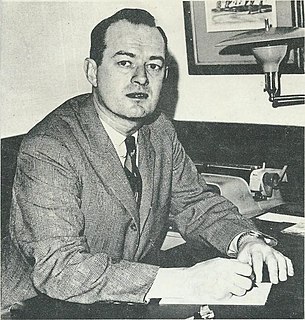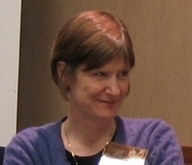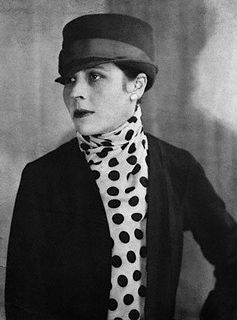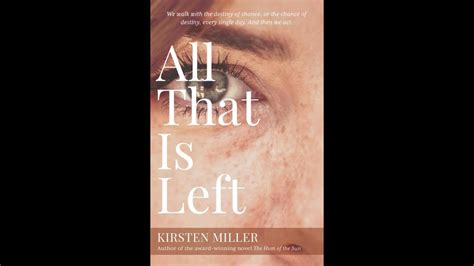A Quote by William Manchester
As she sallied forth from her boudoir, you would never have guessed how quickly she could strip for action.
Related Quotes
Once again she would arrive at a foreign place. Once again be the newcomer, an outsider, the one who did not belong. She knew from experience that she would quickly have to ingratiate herself with her new masters to avoid being rejected or, in more dire cases, punished. Then there would be the phase where she would have to sharpen her senses in order to see and hear as acutely as possible so that she could assimilate quickly all the new customs and the words most frequently used by the group she was to become a part of--so that finally, she would be judged on her own merits.
She smiled, if he could see that, and waited for him to ask the real question. But he was silent. He wanted her to volunteer the story, she realized, and she could just as easily choose to say nothing. But he deserved to know. They all deserved it, and Kirra already knew it, and Cammon may have guessed it, because Cammon could read souls, but Tayse was the only one she would tell.
She was tired of hugging pillows, counting on blankets for warmth, and reliving romantic moments only in her dreams. She was tired of hoping that every day would hurry so she could get on to the next. Hoping that it would be a better day, an easier day. But it never was. Worked, paid the bills, and went to bed but never slept. Each morning the weight on her shoulders got heavier and heavier and each morning she wished for night to fall quickly so she could return to her bed to hug her pillows and wrap herself in the warmth of her blankets.
She was nervous about the future; it made her indelicate. She was one of the most unimportantly wicked women of her time --because she could not let her time alone, and yet could never be a part of it. She wanted to be the reason for everything and so was the cause of nothing. She had the fluency of tongue and action meted out by divine providence to those who cannot think for themselves. She was the master of the over-sweet phrase, the over-tight embrace.
She walked quickly around her one-room apartment. After more than four years in this one home she knew all its possibilities, how it could put on a sham appearance of warmth and welcome when she needed a place to hide in, how it stood over her in the night when she woke suddenly, how it could relax itself into a disagreeable unmade, badly-put-together state, mornings like this, anxious to drive her out and go back to sleep.
She'd assumed she'd be married and have kids by this age, that she would be grooming her own daughter for this, as her friends were doing. She wanted it so much she would dream about it sometimes, and then she would wake up with the skin at her wrists and neck red from the scratchy lace of the wedding gown she'd dreamed of wearing. But she'd never felt anything for the men she'd dated, nothing beyond her own desperation. And her desire to marry wasn't strong enough, would never be strong enough, to allow her to marry a man she didn't love.
She stared at herself in the mirror. Her eyes were dark, almost black, filled with pain. She'd let someone do that to her. She'd known all along she felt things too deeply. She became attached. She didn't want a lover who could walk away from her, because she could never do that - love someone completely and survive intact if her left her.
If she took Po as her husband, she would be making promises about a future she couldn't yet see. For once she became his wife, she would be his forever. And, no matter how much freedom Po gave her, she would always know that it was a gift. Her freedom would be not be her own; it would be Po's to give or to withhold. That he never would withhold it made no difference. If it did not come from her, it was not really hers.
One thing I did have under my belt was, my mother lost her mother when she was 11. She mourned her mother her whole life and made my grandmother seem present even though I never met her. I couldn't imagine how my mom could go on but she did, she took care of us, she worked two jobs and had four children. She was such a good example of how to conduct oneself in a time of grief. When I lost my husband, I tried to model myself as much as I could on her.
But there was still something missing. Something that nagged at her-an emptiness she couldn't explain. There were mornings she woke with her heart pounding wildly and the sensation of arms wrapped around her. But the feeling slipped away the moment she opened her eyes, and no matter how quickly she squeezed them shut, she couldn't recapture the contentment she'd felt.
There was a warmth of fury in his last phrases. He meant she loved him more than he her. Perhaps he could not love her. Perhaps she had not in herself that which he wanted. It was the deepest motive of her soul, this self-mistrust. It was so deep she dared neither realise nor acknowledge. Perhaps she was deficient. Like an infinitely subtle shame, it kept her always back. If it were so, she would do without him. She would never let herself want him. She would merely see.
The girl had a certain nobleness of imagination, which rendered her a good many services and played her a great many tricks. She spent half her time in thinking of beauty, bravery, magnanimity; she had a fixed determination to regard the world as a place of brightness, of free expansion, of irresistible action, she thought it would be detestable to be afraid or ashamed. She had an infinite hope that she would never do anything wrong. She had resented so strongly, after discovering them, her mere errors of feeling.
And when she started becoming a “young lady,” and no one was allowed to look at her because she thought she was fat. And how she really wasn’t fat. And how she was actually very pretty. And how different her face looked when she realized boys thought she was pretty. And how different her face looked the first time she really liked a boy who was not on a poster on her wall. And how her face looked when she realized she was in love with that boy. I wondered how her face would look when she came out from behind those doors.








































